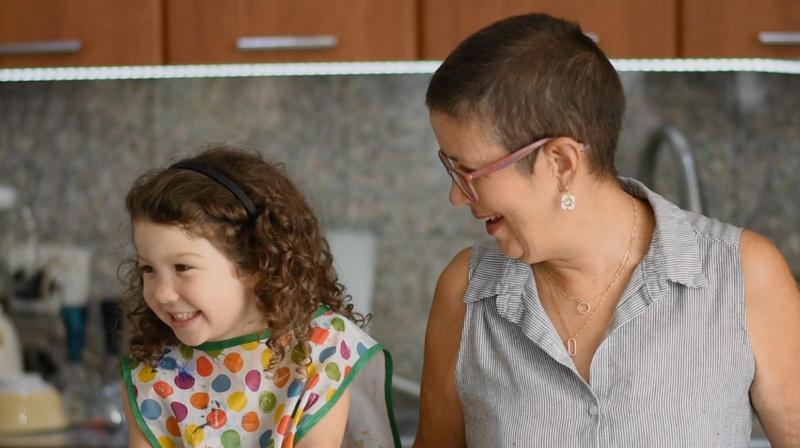CFMC UPDATES
In the Caribbean Fishery Management Council (CFMC)'s bulletin you will find announcements, facts about marine species, and valuable information on fishing and regulations that rule this activity in Puerto Rico and the US Virgin Islands.


In the Caribbean Fishery Management Council (CFMC)'s bulletin you will find announcements, facts about marine species, and valuable information on fishing and regulations that rule this activity in Puerto Rico and the US Virgin Islands.


Cook fish and seafood at home and do not panic in the process. Ita and Ta, granddaughter and grandmother, with their charm and unique seasoning, will guide you through flavorful and affordable recipes of local seafood that you can prepare in your kitchen. Enjoy and share them with family and friends! ENGLISH SUBTITLES AVAILABLE. Do not forget to subscribe!
https://www.youtube.com/channel/ UCOMGdbJebkknEpwkh7Z LgQ
Since 1970, Earth Day has been celebrated throughout the World on April 22. In 2021 the focus or theme for the celebration is “Restore Our Earth”. We can relate Earth Day with the Earth Charter, which was approved and launched in June 2000 after the United Nations Conference on Environment and Development (UNCED), also known as the Rio de Janeiro Earth Summit, in June 1992.
The Earth Charter includes four pillars and sixteen principles which are important guidelines for a responsible use of natural resources. These pillars are:
I. Respect and Care for the Community of Life, II. Ecological Integrity, III. Social and Economic Justice and IV. Democracy, Nonviolence, and Peace.

We want to emphasize on the II. Ecological Integrity pillar and principles 5-8 which are applicable to our relationship with the marine ecosystem and the ecological services that we use through the fisheries.
Protect and restore the integrity of Earth's ecological systems, with special concern for biological diversity and the natural processes that sustain life.
Prevent harm as the best method of environmental protection and, when knowledge is limited, apply a precautionary approach.
Adopt patterns of production, consumption and reproduction that safeguard Earth's regenerative capacities, human rights and community well-being.
Advance the study of ecological sustainability and promote the open exchange and wide application of the knowledge acquired.
Following these principles is a way to ensure that our practices and conducts in the marine fisheries are based on sustainable ways to secure the ecological integrity of the marine ecosystems.


Foto: NOAA
It is also known as Old Wife in the Virgin Islands It is blue,purple, turquoise and green with a yellowish throat, and light blue lines on the fins and head. Changes color to match its surroundings, or if subjected to stress. Found at coral and rocky reefs and over areas with sand or seagrass, in depths of 3–30 m (9.8–98.4 ft), and as deep as 275 m (902 ft). People in our US Caribbean islands eat this fish that can be prepared in different ways: fried, baked, pan seared or grilled.


Julian Magras has been fishing since he was a kid. For Julian, fishing is a legacy that he received from his grandfather and his father, who were the ones that taught him this profession. In 1989, he started to fish commercially and since then, he has never stopped.

Variety has been the key for him to be successful in fishing. Mr. Magras uses different gears: fish and lobster traps, hand lines, and cast net Likewise, he catches spiny lobsters and a wide range of reef fish: snappers, groupers, grunts, triggerfish, parrotfish, jacks, surgeonfish, angelfish, and boxfish. As many other fishers, he has a favorite species and gear.
“Queen triggerfish caught in a fish pot. It is my favorite fish to eat,” Magras said.


Magras actively participates in decision making processes and is involved in several community groups. He is the Chairperson of the St. Thomas/St. John District Advisory Panel (STT/STJ DAP) and a founding member of the St Thomas Fisherman’s Association. He is also a member of the Northside Sportfishing Club and the Committee for the Betterment of Carenage, where he assists with fundraising logistics and participation in fishing tournaments.
He truly believes in cooperation among fishers, community, scientists, and management agencies. Julian himself has collaborated with scientists such as Juan Agar, Brent Stoffle, Virginia Shervette, and David Olsen, among others, and with DPNR-DFW personnel As a fisher, he has contribute to research topics such as: bycatch, mesh selectivity, yellowtail snapper tagging, socioeconomic effects of ghost traps, parrotfish, otoliths from hogfish, queen triggerfish, blackfin snapper, and parrotfish.
"Fishers have the hands-on experience. The fishers have the degree by hands and scientists have degrees through education." He believes that fishers participation in public policy, decision making process is great and was a long time coming.
"Being in the room at the SSC, SEDAR and CFMC meetings has improved the relationship between the fishers and the federal government. Having the opportunity to have the scientists hear and take fisher input in order to make a better well-rounded decision has been effective,” Magras affirmed.


As Chair of the STT/STJ DAP, Julian has had an important role in the decision-making process. It has been a way for him to contribute to the collaboration among fishers, governmental agencies, science, and stakeholders.
“I understand the importance of managing a sustainable fishery. Having the opportunity to have an interactive part in the decisionmaking process is critical to the future of the USVI fishery. The DAP brings together representatives from all user groups. Having these individuals selecting me to serve as their chairman is an honor. The challenge in finding that balance between management and being able to make a living (fishing) sustainably is important to all the DAP members,” he expressed.
Like many other fishers in the US Caribbean region, Julian has witnessed changes in climate and in the sea during years “Species that run at certain times of the year and in specific areas are off by 1-2 months. Also, here are differences in water temperature (warmer) and currents,” Julian said while expressing concern of not being certain of the final outcome.
Julian also has great concern regarding the future of fishing in St.Thomas/St. John. He does not see many young people engaged. “Older fishers are phasing out in 5-10 years. The fishery will be left with a handful fishers keeping traditional fishing alive. It is important to assist with educating the young folks interested in becoming fishers.” Julian mentioned.
Being responsible and staying involved in decision making processes is something that Julian strongly recommends. “[Responsible fishers] follow and get educated on the rules and regulations. They must educate through sharing to everyone on following the laws and understanding the resources. Fishers should get involved in fishery related committees like the STFA, FAC, DAPs, and CFMC, understand the process and what it takes to manage the fishery, and understand the rules and regulations
Lack of education [on fisheries management issues] will lead to failure," Julian said. “Step up and play an active role on these committees. Someone must take over when the older generation leaves,” Julian expressed.

“Fishing is a part of our heritage and it is just one of many components that make up our culture. My grandparents and their kids fished. Keeping the tradition alive is who I am. It is a lot of hard work." He also stated that the government has to take fishers seriously and understand their value in the consistency of the food supply chain. "Our hard work sees no race or gender when it lands on the table. I, Julian Magras, simply fish because I love it, it is my heritage, it is part of my culture and I take great pride in offering fresh locally caught seafood for everyone to enjoy.”
Get involved and learn about seasonal closures and local rules and regulations.
Encourage the people of the USVI to support local fishers socially and economically. Restaurants and hotels should support fresh local products more so than buying imports.

Embrace what effort it takes to put seafood on the table for everyone (resident and visitor), to eat Get involved, ask questions, and eat locally caught products.
Assist with educating the young folks interested in becoming fishers before it all fades away We need to bridge the disconnect between the fishers and the local government. If we do not repair the break, the entire Virgin Islands will suffer. Management cannot act independently of the fishers There is an old saying here: It takes two hands to clap. Consistent seafood is the US Virgin Islands.
The CFMC thanks Ms Ruth Gomez for the interview conducted to Mr Julian Magras and the pictures and information provided






